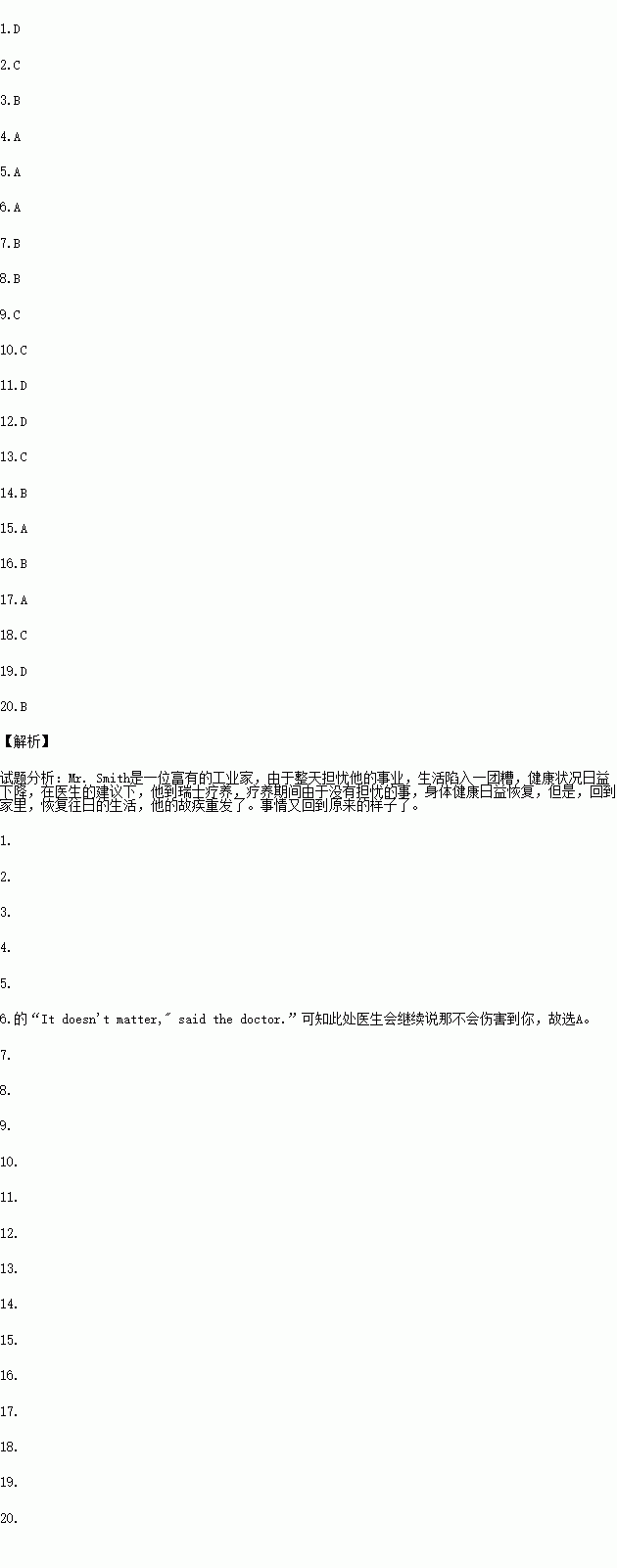题目内容
完形填空
Mr. Black was a wealthy businessman, but he was not with life. He did not sleep well and his food did not with him. The situation lasted for some time. Finally, after a of sleepless nights, he to see his doctor. The doctor advised a change of "Go abroad," he said. "But I'm not good at foreign languages," said Mr. Black. "It doesn't matter," said the doctor. "It won't you to talk a little less. on a trip. Take plenty of exercise. Try to your weight. Avoid (避免) eating rich food. " Mr. Black went to Switzerland. He did not know French or German, and had to himself through gestures. He attended a physical training course. The instructor(指导者) him bend his knees, swing his arms, stretch his neck and shake his .He had to lie on the ground and his right and left legs in . After a time his muscles grew hard and firm. He almost aside his financial(金融的) worries and nearly forgot the importance of more money. He even began to individual trees and individual birds. He ate and slept well. he returned home. But unfortunately his did not long. Soon he was a normal businessman again, worried about his property, his profits, his savings, his success in a competitive society, and things in .
1. A. good B. interested C healthy D satisfied
2. A. suit B. taste C. agree D. fit
3. A. great deal B. number C. course D. few
4. A. decided B. refused C. called D. expected
5. A. surrounding B. life C. weather D. situation
6. A. hurt B. stop C. help D. prevent
7. A. Leave B. Go C. Join D. Start
8. A. add B. lose C. miss D. gain
9. A. say B. tell C. express D. talk
10. A. got B. asked C. made D. forced
11. A. back B. legs C. feet D. head
12. A. rise B. draw C. pull D. raise
13. A. time B. length C. turn D. number
14. A. lay B. put C. pushed D. stepped
15. A. making B. spending C. saving D. collecting
16. A. see B. notice C. consider D. search
17. A. Finally B. Luckily C. Quietly D. Willingly
18. A. development B. pleasure C. improvement D. freedom
19. A. seem B. go on C. continue D. last
20. A. form B. general C. touch D. sight

